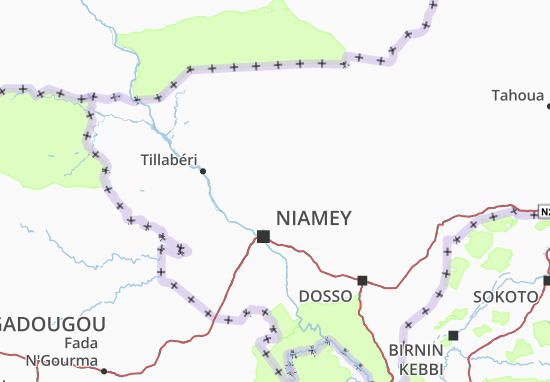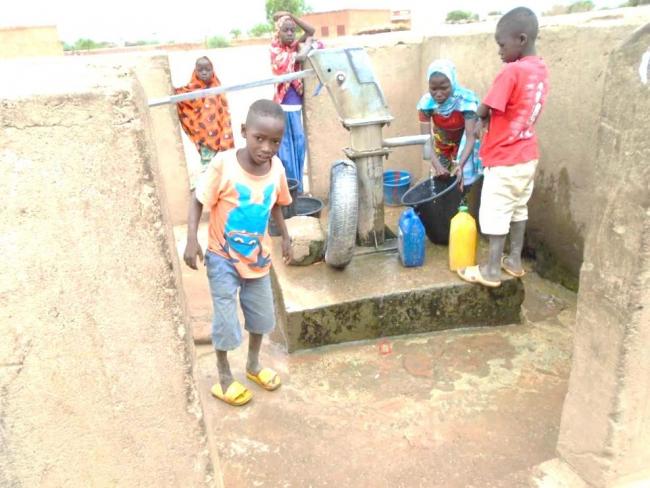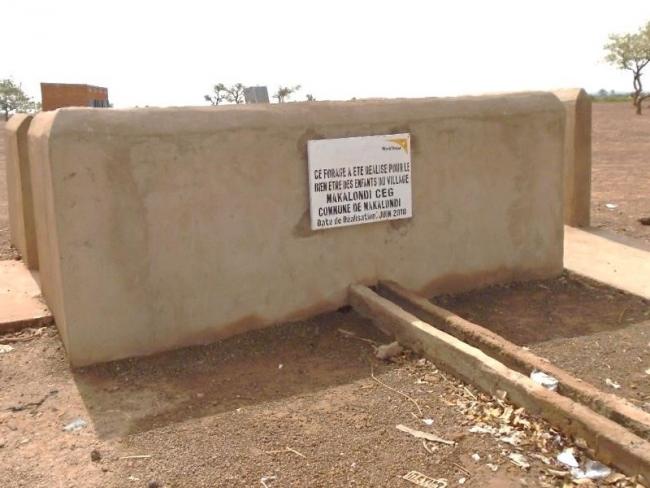The communes Makalondi and Torodi in the region of Tillabéri in Niger have received financial and technical support from IRC and the Conrad Hilton Foundation to carry out an assessment of the water and sanitation facilities in health centres and schools in April 2019
Published on: 23/07/2019

The aim was to assess the functionality, maintenance and efficiency of the management of the schemes in the two communes. The results have led to the development of an action plan to remedy the shortcomings found.
He is the manager of the scheme in both institutions
Within the two municipalities, the Management Committee manages the water and sanitation schemes, the committee consists of teaching / nursing staff, parents, students and civil society.

Number of water points insufficient but functioning
In Makalondi, the assessment shows that the water points of the four health centres are functional and comply with the WHO/ UNICEF guidelines for the quantity of water dispensed, which is 5 litres of water per person per day. Although only 17% of schools have water points, they are all functional. In fact, apart from the village of Kiki, where they are working to increase the water pressure at the standpipe, fourteen schools have water points that supply sufficient water.
In Torodi, the 26 schools all have a functioning water supply, i.e. 19% of the schools in the municipality. Also 13 of the 29 health centres of the municipality (45%) have functioning water points.

Water and soap in the latrine
In Makalondi, 25% of schools have sanitation facilities, but one of them is not functioning. However, the schools do not comply with all the WHO/ UNICEF guidelines for sanitation and hygiene facilities, i.e. segregated by sex and occupation, and preventing all contact with faeces. Overall, the structures are fairly clean and 10 of the 23 facilities with latrines have handwashing facilities with some water and soap.
All the latrines in the seven health centres are functional with a maintenance status ranging from good for some to fair for others: 57% are well and 43% fairly well maintained. Soap is found in three health centres with a handwashing device. In Torodi commune, 13 of the 27 health centres are reported to have latrines. Only the district hospital and the private health centre meet the WHO standards that require sufficient latrines for patients, staff and visitors. All the facilities are in good condition. Seven of the 13 have handwashing devices and six have water and soap.

Management committees in difficulty
The assessment highlighted the difficulty management committees have in ensuring the proper functioning of schemes in schools and health centres. It underlines a lack of competent service operators to manage wastewater and excreta in these two institutions.
An action plan as a corrective tool
Following the assessment, an action plan has been developed for each commune to improve WASH in health centres and schools with targets and performance indicators. In accordance with their municipal water and sanitation strategic plans (PSCEA) 2018-2030, with the vision of "access to drinking water and sanitation in every household, school, health facility and any other place of living”, with a focus on good governance. This means that the authorities will establish and implement national standards for water, sanitation and hygiene in schools and health centres. New monitoring activities will also include schools and health centres.
It can be concluded from the assessment that the management committees fail to provide good management of the schemes. Although the institutions do not have sufficient facilities, the functionality of what is there is adequate. The fact is that the state of maintenance of the schemes has a considerable influence on the health of the population. In addition, to the innovations regarding standards and monitoring, each municipality has devised an action plan with a view to sustainably improving access to water and sanitation in schools and health centres.